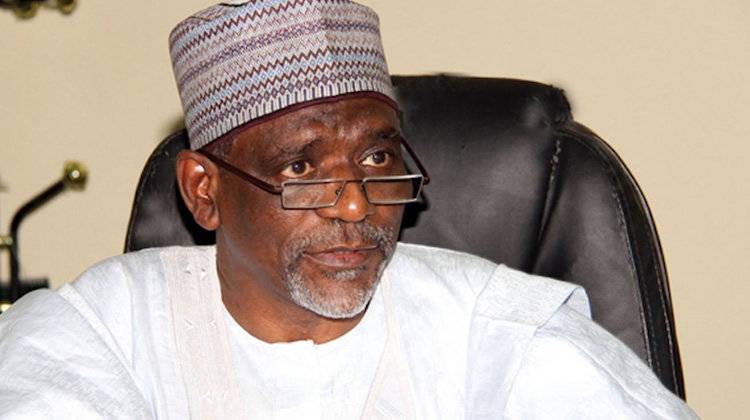The National Association of Polytechnic Students (NAPS) on Monday called on President Muhammadu Buhari to assent to the bill seeking the removal of the dichotomy between HND and BSc holders in the country before leaving office on May 29th.
The students threatened to shut down all polytechnics, colleges of technology, and allied institutions that award HNDs across Nigeria if Buhari doesn’t assent to the bill in the next 14 days.
The NAPS Deputy Senate President, Adeniji Temitope, in a statement, said Nigerian polytechnic students and alumni have been suffering challenges as a result of the dichotomy.
The student body alleged that although Buhari had been signing numerous measures, the HND/BSc dichotomy bill had not been included. They, therefore, vowed to “occupy the Presidential Villa in Abuja and continue to cry until Buhari assents to the bill.”
- Buhari swears in 6 new permanent secretaries
- ISWAP abducts 3 aid workers, 2 security guards in Borno
“Polytechnic students and graduates are one of the major groups that supported and sustained the regime of the president. We shouldn’t be treated like outcasts in our nation. Buhari should stop the HND/BSc dichotomy now and make it one of his major achievements,” the statement said.
This is coming two weeks after the Nigerian Association of Technologists in Engineering (NATE) also urged Mr President to assent to the bill.
The National President of NATE, Dominic Udoatan, during a briefing in Abuja, asked, “What injury will anyone suffer if this particular bill is signed into law”?
“I doubt if there is any, except for some people who do not want Nigeria to grow technologically. Those obstructing presidential assent on this bill are people who want us to remain an importing nation, and are not wishing the country well,” he said.
He said unfortunately, “efforts to abolish this ugly monster called the HND and BSC dichotomy in Nigeria have always been thwarted by enemies of technological advancement in Nigeria, who want the country to go down at all costs.”
“These self-centred persons with ill motives stay at a corner and constantly devise means of frustrating polytechnic education, technological breakthrough/development, and the technologists in our dear country,” he said.
“We wish to appeal to Mr President to assent to the bill before him. If the bill is graciously signed by the president, posterity will forever remember him,” he said.
While expressing the frustration felt by HND holders, the president said they see no need for the dichotomy, so it should be removed because there is no work progression.
He said they start work, and after about 10 years in service, they will get to level 14 and then remain stagnant at the level for 20 years or more before retirement while degree holders progress.
According to NATE, the present situation has made many parents unwilling to allow their children to seek admission into polytechnics because of the stigma of inferiority that polytechnic graduates are second-class citizens.
The bill
Meanwhile, a Bill for an act to abolish and prohibit dichotomy and discrimination between first-degree and higher national diploma in the same profession/field for the purpose of employment, and for related matters, was sent to the President of the Federal Republic of Nigeria for assent on March 8, 2022, with reference No. NASS/CAN/37/NOL.1/58. This is still pending in the office of the president.
The Bill for an ACT to Abolish HND and First-Degree Dichotomy was sponsored by Senator Patrick Ayo Akinyelure at the Red Chamber and it went through a public hearing, was passed on June 2, 2021, and the House of Representatives concurred on November 23, 2021.
Before the bill was passed by the 9th Assembly, the issue of removing the dichotomy between HND and BSc lingered for a long time, generating protests from those affected and the government going forth and back. This is in spite of issuing circulars in regard to it but without taking any specific measures.
Section 42 of the 1999 Constitution, as amended, prohibits all forms of discrimination, while Articles 5 and 15 of the African Charter on Human and Peoples Rights prohibit degrading workplace treatments: and provide for the right to work under equitable and satisfactory conditions, and equal pay for equal work. Yet the discrimination continues.
The discrimination
According to a document obtained by the Daily Trust issued by the Coalition of Higher National Diploma Stakeholders, made up of HND holders, polytechnic students, trade unions, and other associations, the discrimination is a colonial legacy that started when the colonial masters created two class structures for the public service in the 1950s.
It said the upper class was for the Whites and Nigerian elite who were educated overseas, and thereafter this gesture extended to the University College Ibadan and later other universities.
The lower class was for other Nigerian workers and those that were locally trained at the Departmental Training Schools (DTS), which later metamorphosed into the first generation of polytechnics.
“Unfortunately, after independence, the public service maintained that colonial legacy and continued to discriminate against the products of polytechnics in the same way and manner the colonial masters treated the products of the Departmental Training Schools,” the document reads.
This, according to the document, is in spite of the upgrade of the mandate and curriculum of the polytechnics to award higher national diplomas at the Higher Education Conference and National Curriculum Conference in the late 60s and early 70s, respectively.
However, this continued even after the HND was recognised and accorded higher education status by the National Policy on Education, the Polytechnic Act, the National Minimum Education Establishment Act, the National Youth Service Corps Act, and other policy decisions, such as the Government White Paper.
Explaining the bone of contention, the President of the Higher National Diploma Holders Association of Nigeria (HNDHAN), Sabastine Onyemaobi, told Daily Trust that it was painful that an HND holder could not progress beyond GL14 in his/her workplace, irrespective of competence, saying, aside from that, there are other conditions, which he described as highly unjust and harsh.
Though, according to Onyemaobi, all other areas of the white paper have been implemented, like the harmonisation of salaries in the civil service, it is only the issue of the HND that has not been implemented.
He said some of the conditions for progression by HND holders include the acquisition of PGD and master’s degrees in university, compulsory demotion, salary with no increment within the period of demotion, and a sluggish and reluctant conversion process that lingers for many years.
Others are the denial/loss of many years of seniority in service and arbitrary placement in unsolicited strange cadres, thereby subjecting them to sub-professional cadres and the same career progression as holders of WAEC, OND, NCE etc.
Efforts to end the dichotomy
The federal government had in June 2006 set up a White Paper Drafting Committee on the Consolidation of Emoluments in the Public Sector to put an end to the dichotomy.
The committee, which was made up of 17 members, was chaired by Malam Nasir Ahmed El-Rufai, then Minister of FCT, with members that included Dr Rabiu Musa Kwankwaso, Dr Ngozi Okonjo-Iweala, Ambassador Ahmed Al-Gazali and Mrs Esther Nenadi Usman, Prof. Charles Soludo, and Ibrahim Dankwambo among other personalities.
The committee submitted the white paper, recommending that the government accept that the undue dichotomy and ceiling on the salary grade level/rank attainable by HND holders should be removed.
“OND and its equivalent from any government-recognised institution should be regarded as a new minimum point of entry, and the current scheme of service should be reviewed to reflect the above recommendation,” the document reads.
On March 14, 2007, and June 6, 2008, respectively, the Federal Executive Council (FEC) reaffirmed that: “The HND certificate will remain a legal tender in Nigeria, and holders of such certificate will continue to be recognised as the equivalent of first-degree holders without discriminatory remunerations and limit to progression in the workplace.”
Daily Trust also obtained a Federal Establishments Circular 1974 -1980 dated May 2001 and signed by the Permanent Secretary of the Federal Ministry of Establishments, G. A. E. Longe, which integrated HND and BSc into the main cadre, but it was not implemented.
It could be recalled that the federal government announced in June 2018 that the award of HND certificates by polytechnics had been scrapped.
The decision was reached at the Federal Executive Council (FEC), where approval of a comprehensive reform of Nigeria’s tertiary education system was given.
It said in effect, the award of HND would be limited to only students currently admitted to the programmes.
Also, all programmes currently run by polytechnics, that are not technology-based, and which are at about 70 per cent, would be scrapped.
Under the new rule, polytechnics would now become campuses of the proximate universities, with the vice-chancellors of those universities appointing provosts for the polytechnics, subject to the ratification of the university councils.
The polytechnics would now be limited to the award of National Diploma (ND) while those desirous of further education would be awarded the Bachelor of Technology (B.Tech) by proximate university.
The Minister of Education, Malam Adamu Adamu, told journalists that his ministry would, however, continue to licence private polytechnics and colleges of education for the award of qualifications at ND and National Certificate in Education (NCE) levels.
He said, “After we have exhausted the current students under the programme, there will be no more awards of HND. This means that there will be no fresh admissions for HND programmes. And in addition, any programme that is not technical will be out of the polytechnics.”
Adamu further stated that, “The HND certificate will remain legal tender in Nigeria, and holders of such certificates will continue to be recognised as the equivalent of first-degree holders without discriminatory remunerations and limit to progression in the workplace.”
Meanwhile, the federal government, despite its commitment to removing the dichotomy between BSc and HND, said the dichotomy will remain until an ongoing review of the scheme of service is completed.
Benefits of ending dichotomy
According to the coalition of HND holders, if the bill is passed into law, it will positively impact almost every household in Nigeria and bring massive relief to millions of people who have been subjected to frustration due to discrimination.
They noted that it will also propel the technological and industrial advancement of the country and enhance the capacity of both university and polytechnic systems to produce quality graduates.
It will also end the colonial legacy of the class concept and certificate-based approach at work, among others.
It will reduce unemployment, stringent emphasis on certificates will be reduced, and the population of students seeking admission into our universities for first-degree certificates will be drastically reduced, while technological education/technological advancement will be enhanced for the benefit of the nation, NATE also said.




